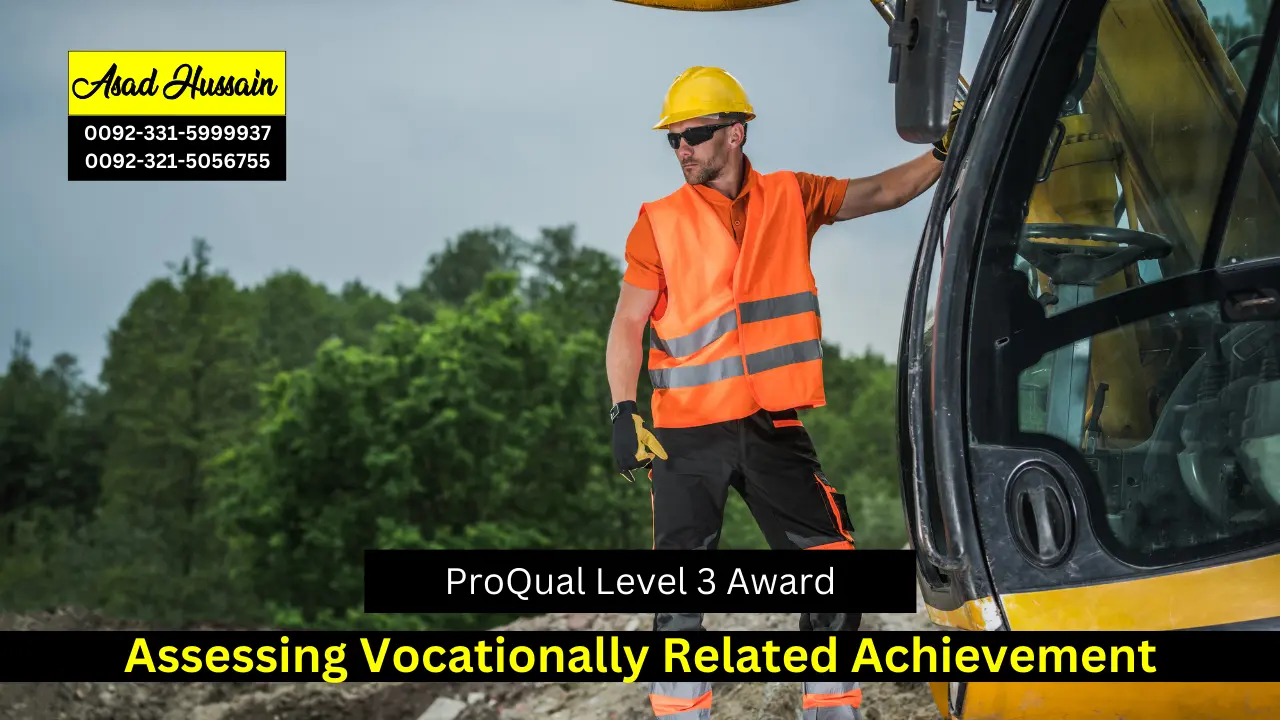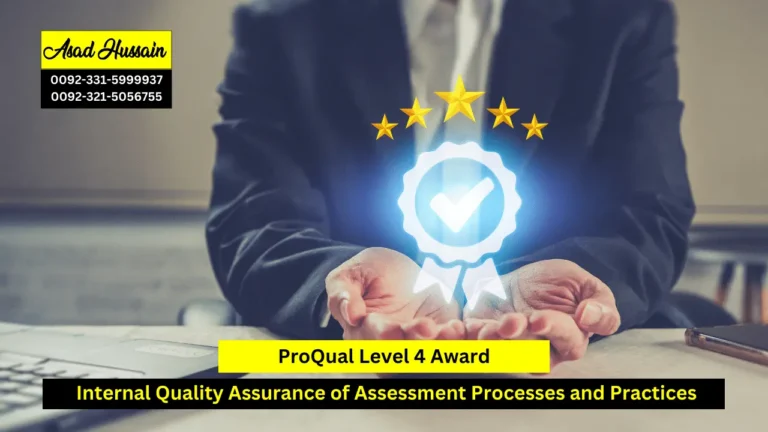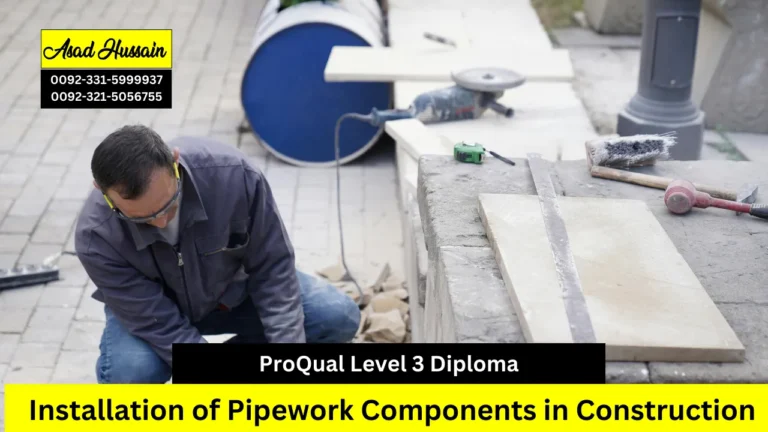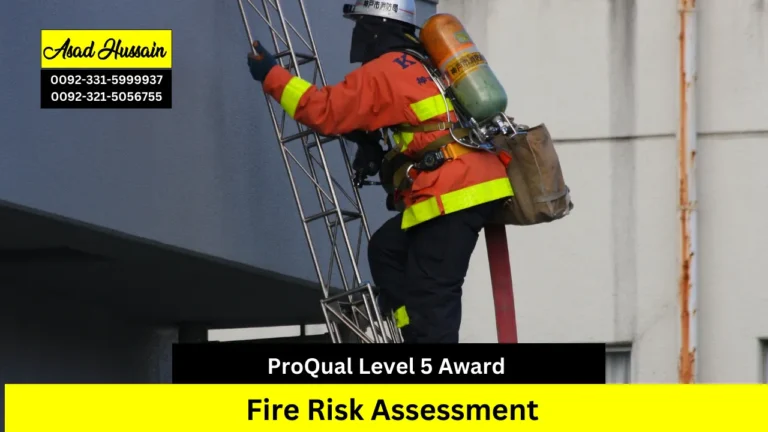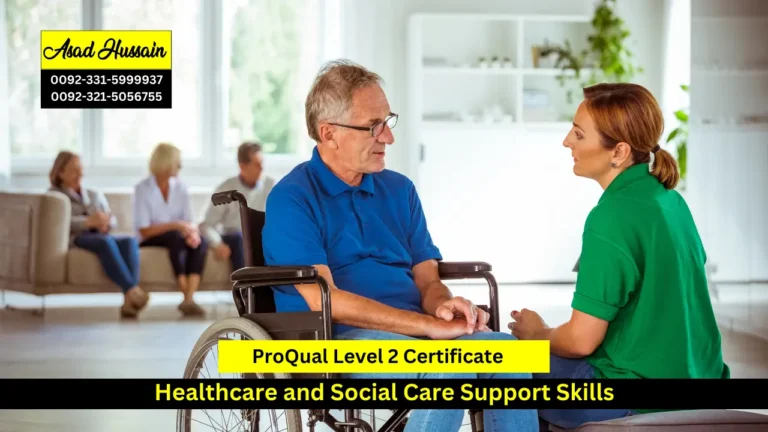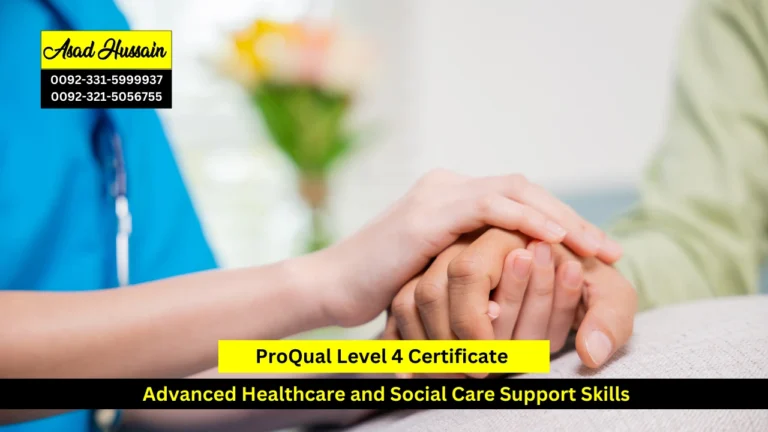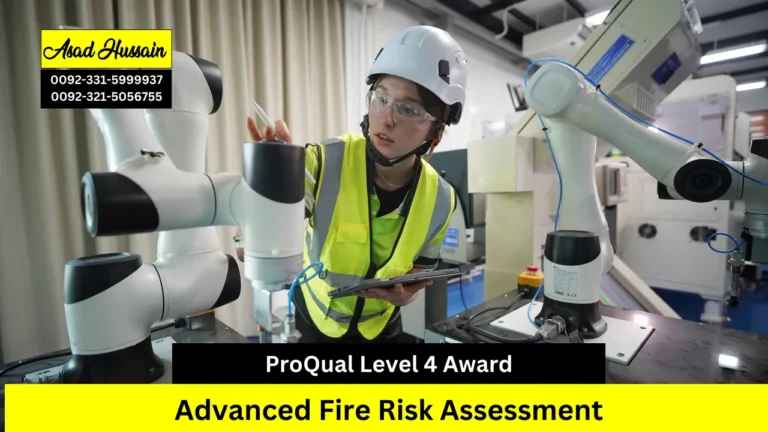The ProQual Level 3 Award in Assessing Vocationally Related Achievement is your passport to unlocking a world of opportunities in the field of vocational education. This dynamic and engaging program is designed to empower educators, trainers, and assessors with the knowledge and skills necessary to evaluate and enhance vocational achievements. With a concise yet comprehensive curriculum, this award equips you with the tools to make a significant impact in the lives of learners while advancing your own career.
This qualification transcends traditional assessment methods, delving into the heart of vocationally related achievement evaluation. It not only equips you with the technical expertise to assess performance but also nurtures the art of providing constructive feedback and support to learners. You’ll become a beacon of inspiration, guiding individuals to reach their full potential within the vocational realm.
What sets this ProQual Level 3 Award apart is its versatility. Whether you’re an aspiring assessor or a seasoned professional, this program caters to your needs. It’s a stepping stone for those just starting their journey in education, and a ladder for those seeking to climb higher in their career. You’ll master the art of assessing in a variety of vocational contexts, whether it’s in a classroom, on-the-job, or through work-based learning.
Program Highlights
Study Units
ProQual Level 3 Award in Assessing Vocationally Related Achievement consists of 2 mandatory units having 54 GLH and 90 Hours TQT. Candidates must complete all of the following Mandatory units.
| Sr# | Unit Title | Unit Level | GLH |
|---|---|---|---|
| 1 | Understanding the principles and practices of assessment | 3 | 24 |
| 2 | Assess vocational skills, knowledge and understanding | 3 | 30 |
Entry Requirements
The following core criteria are required for enrolment.
- Professional Context: Applicants should be in a role that involves operational or supervisory responsibilities where environmental management forms part of their duties.
- Educational Background: While not mandatory, possession of a Level 2 qualification in a related field, such as a Certificate in Principles of Sustainability, Health and Safety, or a relevant vocational subject, is advantageous.
- Language Proficiency: Excellent written and spoken English is essential for interpreting legislation, writing procedures, and effectively communicating environmental requirements and audit findings.
Candidates are expected to have a basic understanding of workplace operations and environmental issues to contextualise the learning. By meeting these requirements, you confirm your readiness to develop the specialised knowledge and skills required to manage environmental responsibilities systematically and effectively.
Learning outcomes
Upon completing the Level 3 Award in Assessing Vocationally Related Achievement, learners will be able to:
- Understand the principles and practices of assessment in a vocational context, including the different assessment methods available and the importance of feedback and record-keeping.
- Understand the roles and responsibilities of an assessor in a vocational context, including the importance of maintaining objectivity and confidentiality throughout the assessment process.
- Plan and prepare for effective assessment in a vocational context, including the need to use a range of assessment methods to meet the needs of different learners.
- Carry out assessments in a vocational context, including observing and questioning learners, using product evidence, and giving feedback to learners.
- Evaluate and improve own assessment practice, including identifying areas for improvement and updating knowledge and skills in line with industry standards and best practices.
- Understand the requirements for quality assurance of assessment in a vocational context, including the role of internal and external quality assurance processes.
- Understand the legal and ethical considerations that apply to assessment in a vocational context, including the need to ensure that assessments are fair, reliable, and valid.
Target Audiences
ThiThis award is specifically designed for assessors who need to evaluate learner competence in non-workplace settings, focusing on the assessment of vocational skills and knowledge demonstrated through assignments, projects, and simulated environments.
- Further Education & College Tutors: Lecturers and trainers who assess learners’ vocational achievements through classroom-based assignments, practical demonstrations, and projects within a training centre.
- Private Training Providers: Assessors employed by training organisations who deliver and evaluate full vocational qualifications, where evidence is generated primarily in a learning environment.
- Apprenticeship Assessors (Off-the-Job): Professionals responsible for assessing the knowledge-based elements of apprenticeships, typically through coursework, tests, and planned activities away from the apprentice’s usual workstation.
- Skills Instructors & Workshop Assessors: Individuals who teach and assess practical skills in simulated or dedicated workshop settings, such as construction, engineering, or hospitality, outside of a live commercial operation.
By achieving this award, you formalise your expertise in planning, judging, and providing feedback on vocational evidence, ensuring your assessments are fair, reliable, and meet national standards.

